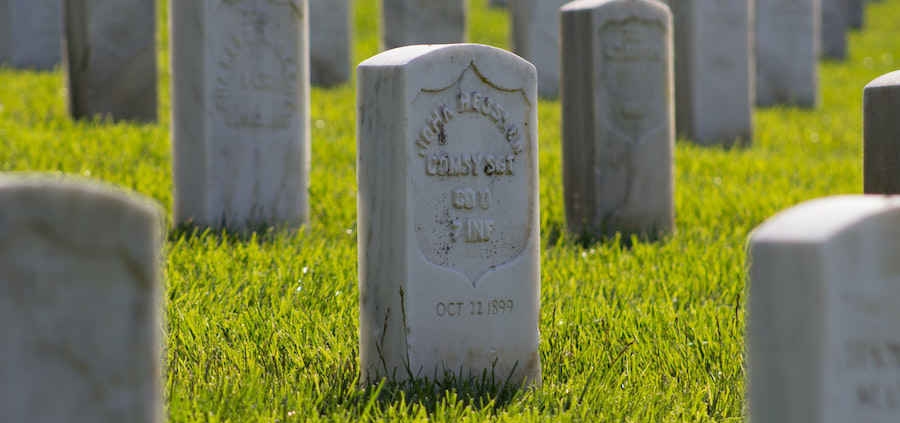Memories Are Made of This by Fran Salone-Pelletier
A version of this piece originally appeared in an edition of the Brunswick Beacon—Ed.
In the halcyon days of my young adulthood, our college dorm halls rang with the melodies of romantic songs. A favorite selection featured Dean Martin’s crooning about the content of remembrances. As young women with idyllic dreams, we would raise the radio’s volume to fill the corridor with sound. Then we’d sing along with the crooner. Our dreaming harmonies centered on sweet, sweet memories that were yet to be revealed as our own. I guess there was a universal sense or hope that remembering would both evoke the fragrance of unforgettable experiences and somehow simultaneously cause them to come into being.
May’s end brings with it a similar practice with the annual observation of Memorial Day. As a nation, we honor the men and women who died while serving in the US military. Our memories are not sweet, sweet. They are bittersweet. Yet we recall them with the fragrance of “never forgetting” all that has been done for us, to maintain our liberty and secure our way of life.
In a somewhat ironic way, the celebration, first known as Decoration Day, originated in the years after the Civil War. An article from History.com deepens the irony with reality:
In May 1868, General John A. Logan, commander-in-chief of the Union veterans’ group known as the Grand Army of the Republic, issued a decree that May 30 should become a nationwide day of commemoration for the more than 620,000 soldiers killed in the recently ended Civil War. On Decoration Day, as Logan dubbed it, Americans should lay flowers and decorate the graves of the war dead “whose bodies now lie in almost every city, village and hamlet churchyard in the land.”
Decoration Day became Memorial Day, an official federal holiday, in 1971. It also served as a marker for the beginning of summer. An interesting “did you know” question offers this tidbit of information: “Since 2000, when the US Congress passed legislation, all Americans are encouraged to pause for a National Moment of Remembrance at 3 p.m. local time.”
A related article by Dave Roos tells of a remarkable discovery at a Harvard University archive the late 1990s, when David Blight, a professor of American history at Yale University, learned of a Memorial Day ceremony that had been organized by a group of freed Black slaves in the days following the Civil War. The archive contained two boxes of uncatalogued documents from Union veterans. “There was a file labeled ‘First Decoration Day,’” Blight later recalled. “Inside on a piece of cardboard was a narrative handwritten by an old veteran, plus a date referencing an article in The New York Tribune. That narrative told the essence of the story . . . of this march on the race track in 1865.”
The race track in question, the Washington Race Course and Jockey Club in Charleston, South Carolina, had been converted into a prison for Union soldiers toward the end of the Civil War. Upwards of 260 of these soldiers died while in captivity, to be buried unceremoniously in a mass grave adjacent to the track. After the fall of Charleston and the evacuation of Confederate troops, newly emancipated slaves gathered together to give the Union prisoners a proper burial. Roos explains: “They exhumed the mass grave and reinterred the bodies in a new cemetery with a tall whitewashed fence inscribed with the words: ‘Martyrs of the Race Course.’” History books do not record this event, but it could well be recognized as the first Memorial Day.
Lest we think our desires to commemorate the valor of those who battled for victory in this country is unique to us, we should recall the long cultural history of the practice. In ancient Greece, for instance, there were public funerals, processions, and displays of mourning after each battle, as well as annual days of remembrance for fallen soldiers and other loved ones.
Considering all of this, perhaps we have taken recall of this day too lightly. Perhaps we are too embroiled in wars of all kinds. These are battles that seem unending. They are skirmishes which insidiously erode the sober sweetness of solemn memories. They are not limited to global or national conflicts. Families also feel the pain of separation, the deadliness of exclusion or strained inclusion. There is a rift in the group, recognized or not.
Perhaps we have managed to condense our remembrances into the ease of a day off, a time to fire up the grill and enjoy traditional hamburgers, hot dogs, and maybe even a steak. Perhaps we have decorated our lives with a facile acceptance of the wages of war. Perhaps we have forgotten the power of public mourning and universal grief at the loss of lives, mostly young, vibrant lives, in a nation’s valiant battle to set us free. Perhaps we are afraid to face the truth of life, the inevitability of death.
Perhaps we need to recall the memories, not with saccharine sweetness but with the potency of love’s echoing voice. In the echo chamber of my heart, I can hear Dean Martin once again. This time the song deepens from youthful, romantic yearnings to the rigor of life’s demands. Yet the words ring true.
Will you sing them along with me this Memorial Day?
Stir carefully through the days
See how the flavor stays
These are the dreams you will savor
With God’s blessings from above
Serve it generously with love . . .
Memories are made of this.
Fran Salone-Pelletier holds a master’s degree in theology. She is the author of a trilogy of scriptural meditations, Awakening to God: The Sunday Readings in Our Lives, as well as a religious educator, retreat leader, lecturer, and grandmother of four. She can be reached at hope5@atmc.net.





Leave a Reply
Want to join the discussion?Feel free to contribute!